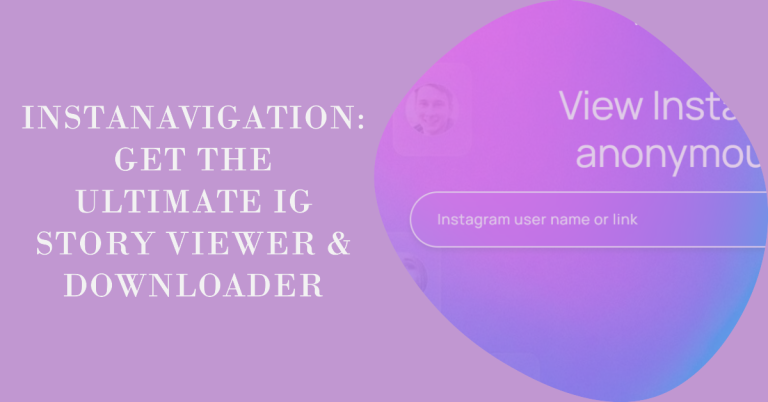There are millions of active blogs worldwide, and there’s a good reason. Whether it’s a personal interest or a professional pursuit, blogging offers numerous advantages.
Blogging is a potent marketing strategy for businesses looking to establish a blog. It enhances their SEO efforts, establishes their authority within the industry, and fosters connections with their target audience.
Blogging enables individuals to become influential figures in their niche, develop their brand, and earn money online. Regardless of one’s motivation for blogging, it has become essential to establish an online presence, learn how to create a website, and share valuable insights with a global audience.
This blog post will discuss 11 practical blogging tips for beginners to help kickstart their new blog.
Successful Blogging Tips For Beginners
1. Determine the Primary Goals of Your Blog
Whether you run a blog or manage a corporate website, it is essential to set your goals first. When starting a company blog, you must outline a set of business objectives you aim to achieve.
Here are a few illustrative examples:
- We are initiating a corporate blog to enhance brand recognition and online visibility by ranking well for popular search terms.
- Our goal for launching this blog is to drive more conversions by sharing content that showcases our products.
Keeping a business mindset in the foreground is crucial, even if you’re developing a personal blog.
2. Choose the Right Niche for Your Blog
In the beginning, it’s crucial to concentrate your efforts on a particular area of interest. This will assist you in establishing a presence in that specific field and attracting your initial group of readers. Initiate with a broad subject that applies to your business and divide it into more specific subtopics to pinpoint your ideal niche.
For instance, if your company develops various marketing tools, marketing would be a broad subject connected to your business. However, you can focus on subtopics linked to your offered tools instead of writing about general marketing subjects such as email marketing, search engine marketing, and social media marketing.
3. Understand Your Audience
Understanding your audience is vital for the success of your blog. By comprehending your audience, you can establish a strong connection with them. Using their language demonstrates that you are part of their community and understand them. Creating valuable content that connects with your readers and captures their interest is the foundation of an effective content strategy.
If you fail to grasp the desires and needs of your readers, your content may not be valuable or relevant to them. Consequently, they may quickly navigate to the next blog. To begin, identify your target readers and conduct thorough research on them. Find out which blogs they read and which podcasts they listen to. Understand their challenges, goals, and how your content can solve their problems.
4. Choose the Right Blogging Platform
Selecting the appropriate content management system (CMS) holds significant importance. It serves as the platform for hosting and managing your blog. The choice of the best CMS depends on various factors, such as your budget, customization requirements, and customer support, among others.
In case you are starting a corporate blog, it’s essential to determine if your existing business website is already utilizing a CMS. If not, consider methods to integrate them. There are numerous excellent blogging platforms available, each with its capabilities. WordPress, Webflow, Drupal, and Ghost are among the most favored choices.
5. Write on Topics Your Audience Will Enjoy
Competitor blogs are a valuable source of inspiration, but relying on something other than them is important. Your competitors may overlook specific topics that your audience is genuinely interested in. Therefore, conducting in-depth research is essential to identify what your audience is actively seeking.
However, when it comes to keyword research, the most popular keyword research tools are Answer the Public and Google Keyword Planner, which offer free services. For a more comprehensive option, you may opt for the SEMrush topic research tool and its extensive features.
6. Use Keywords Strategically
Apart from conducting keyword research to comprehend the topics your audience is interested in, it is essential to integrate those keywords into your content. It is recommended to Include keywords in both the title and body of your article. This enables Google to grasp better the subject matter covered in your article. Additionally, when you publish your post, make sure to incorporate keywords in the following areas:
- URL: Let’s say, a website like www.example.com/blog/important-word.
- Meta Title: It’s the title displayed in blue when you find something on Google.
- Meta Description: It’s the brief paragraph right below the blue title in Google search results.
- Alt Text: The text you include with your images to make them understandable by search engines.
7. Keep Search Intent in Mind
When people use Google to search for a particular word or phrase, their search intent indicates the primary objective or purpose behind their search. Google aims to show the most suitable web pages first in the search results. Examining these pages can offer valuable information. If your goal is to attract natural search traffic, prioritize search intent. You must observe the pages with high rankings for your desired keyword in Google search results. Take note of their structure and the subtopics they address. By analyzing these pages, you can gain inspiration for your blog post.
8. Create Shareable Content
Your blog readers can play a significant role in spreading the word about your content. However, you must produce valuable content that solves the reader’s problems. This entails addressing your readers’ interests and addressing everyday challenges. Provide practical insights and accurate information to encourage readers to share your post with their connections. Prioritizing your readers when blogging is essential, making readability a key consideration. To enhance the ease of reading, incorporate short paragraphs and divide long sentences.
9. Do Basic SEO of Your Blog
SEO covers all elements of organizing and composing the material you publish on your site. And content SEO holds great importance in blogging. Like regular visitors, Google reads and examines the texts on your website. Google’s algorithm assesses your site’s ranking based on published content quality and usefulness. It is widely recognized that content holds the utmost importance. To enhance content SEO, it is necessary to carefully consider relevant keywords and structure your website in a manner understandable by Google bots and users. Although it requires a substantial amount of effort, in the end, the results make it worthwhile.
10. Monitor Your Content Performance
Once you have published your posts, is it advisable to write the next one immediately? Yes, generally speaking. However, it is essential to monitor your published posts to assess their performance.
There are various significant metrics that you can monitor, depending on your objectives. The primary ones encompass:
- The amount of traffic your blog receives (sourced from Google Analytics).
- The origins of that traffic (sourced from Google Analytics).
- Rankings (sourced from Position Tracking).
- The average duration visitors spend on your blog posts (from Google Analytics).
- Conversion rates on the blogs (sourced from event tracking in Google Analytics or your marketing automation platform).
11. Consistency Is Key
Let’s be honest. You picked blogging because you have a passion for writing, but we all have those moments when writing is the last thing we want to do. Writing can be challenging sometimes. Taking a day or two off is not a significant issue, but it puts you at risk of losing your momentum.
To prevent this, don’t write only when you feel like it. Establish a writing schedule and stick to it. Be consistent. As a new blogger, you must decide: How frequently will you create new posts? Once a week? Once a month? Decide the frequency of your posts and commit to them because readers appreciate consistency.
Bottom Line:
These blogging tips will enable you to uncover subjects that resonate with your audience and receive practical suggestions regarding which keywords to incorporate.









